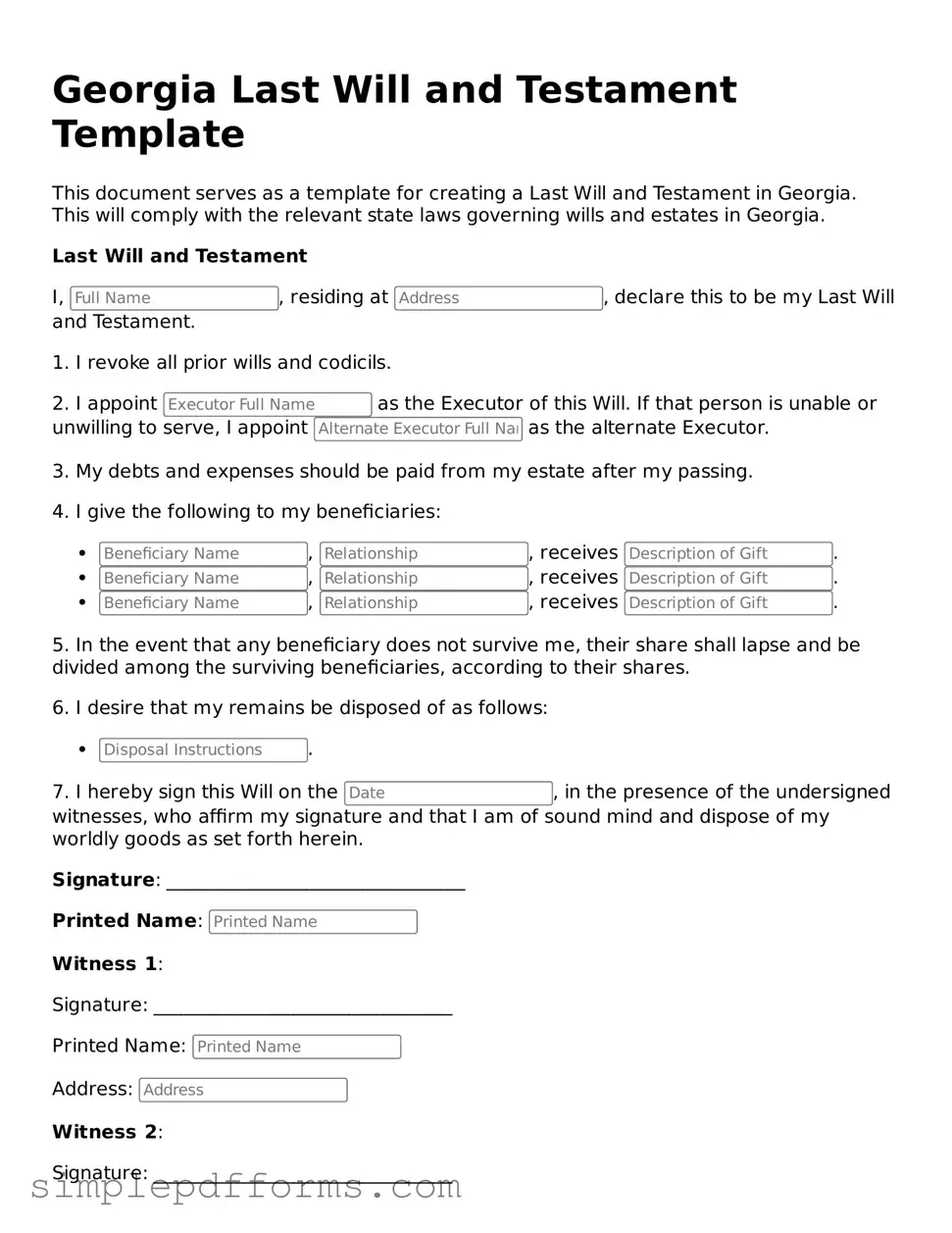Attorney-Verified Last Will and Testament Document for Georgia State
A Last Will and Testament in Georgia is a legal document that outlines how an individual's assets will be distributed after their death. This form allows a person to express their final wishes regarding property, guardianship of dependents, and other important matters. Understanding the requirements and implications of this document is essential for anyone looking to secure their legacy.
Open Last Will and Testament Editor Now

Attorney-Verified Last Will and Testament Document for Georgia State
Open Last Will and Testament Editor Now

Open Last Will and Testament Editor Now
or
Get Last Will and Testament PDF Form
Your form is waiting for completion
Complete Last Will and Testament online in minutes with ease.